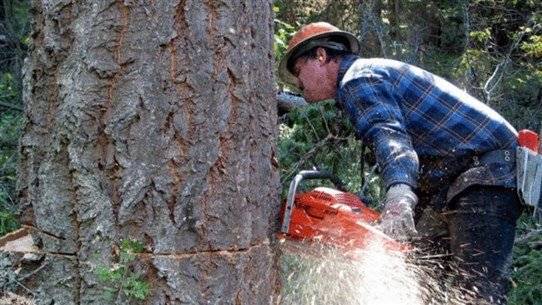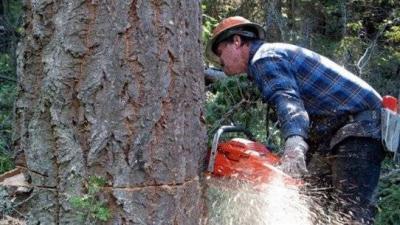The concerns of the Lebanese people, especially those living in mountainous areas, grow as winter approaches, amid the skyrocketing prices of fuel, particularly diesel, which have exceeded the citizens' ability to purchase it for heating. As a result, many villagers have turned to forests to return to heating with firewood. Unfortunately, there has been exploitation of the people's struggles and difficult living conditions by mafias across Lebanese territory, which are committing environmental crimes akin to extermination against the environment and nature through the indiscriminate cutting of trees, especially oaks and mulberries, for trade and smuggling purposes.
Returning to the forests is not a new phenomenon; rural residents have always relied on firewood in winter. However, they have never resorted to cutting trees in the manner seen today. Traditionally, they engaged in thinning and pruning the forests in a way that allowed them to benefit from firewood while preserving the trees. Some villages would collectively manage the forested areas and distribute firewood equitably among families. The current reality is disheartening, with calls from various local and environmental groups urging authorities to act in order to preserve what remains and to stop these mercilessly profit-driven crimes.
Agriculture Minister in the caretaker government, Abbas El Hajj Hassan, announced via MTV about a recent initiative. A meeting was held at the army command, attended by him, Environment Minister Nasser Yassin, and Army Commander Joseph Aoun, with Interior and Municipalities Minister Bassam Mawlawi also expected to participate. As a result of this meeting, it was agreed that the Lebanese army would intervene to help control any illegal tree cutting, ensuring that any vehicle loaded with cut trees is stopped, and confiscating both the vehicle and the load if the owner does not have a forestry thinning permit issued by the Ministry of Agriculture in the regions, which will begin issuing to anyone who applies for it.
El Hajj Hassan indicated that the ministry intends to expand the municipalities' authority, emphasizing that while the goal is to prevent tree cutting, it is also essential to assist citizens by facilitating their forestry thinning activities to meet families' needs and protect them from the winter cold. The Minister further stated that an expedited legislative proposal has been prepared and will be included on the agenda for the upcoming legislative session. The proposal suggests increasing the penalties for violators from the current one and a half million Lebanese Lira, adding, "I have no objection to increasing it tenfold," alongside a seven-day suspension for offenders with a stay of execution.
As incentivizing measures, 25% of the fine value will be given to the forestry officer to enhance their role, with another 25% going to the forestry directorate's fund in Lebanon. El Hajj Hassan confirmed that the army has begun intervening in various Lebanese regions to apprehend violators, stressing the importance of oversight on forestry activities also from municipalities and agricultural authorities. "Thieves have no creed, and those who cut trees have no creed," is how El Hajj Hassan describes those who exploit Lebanon's forests, urging every Lebanese citizen to act as a guardian and report any tree-cutting incidents to the army to help put an end to this destructive phenomenon that threatens to deplete the invaluable resources of the country.




